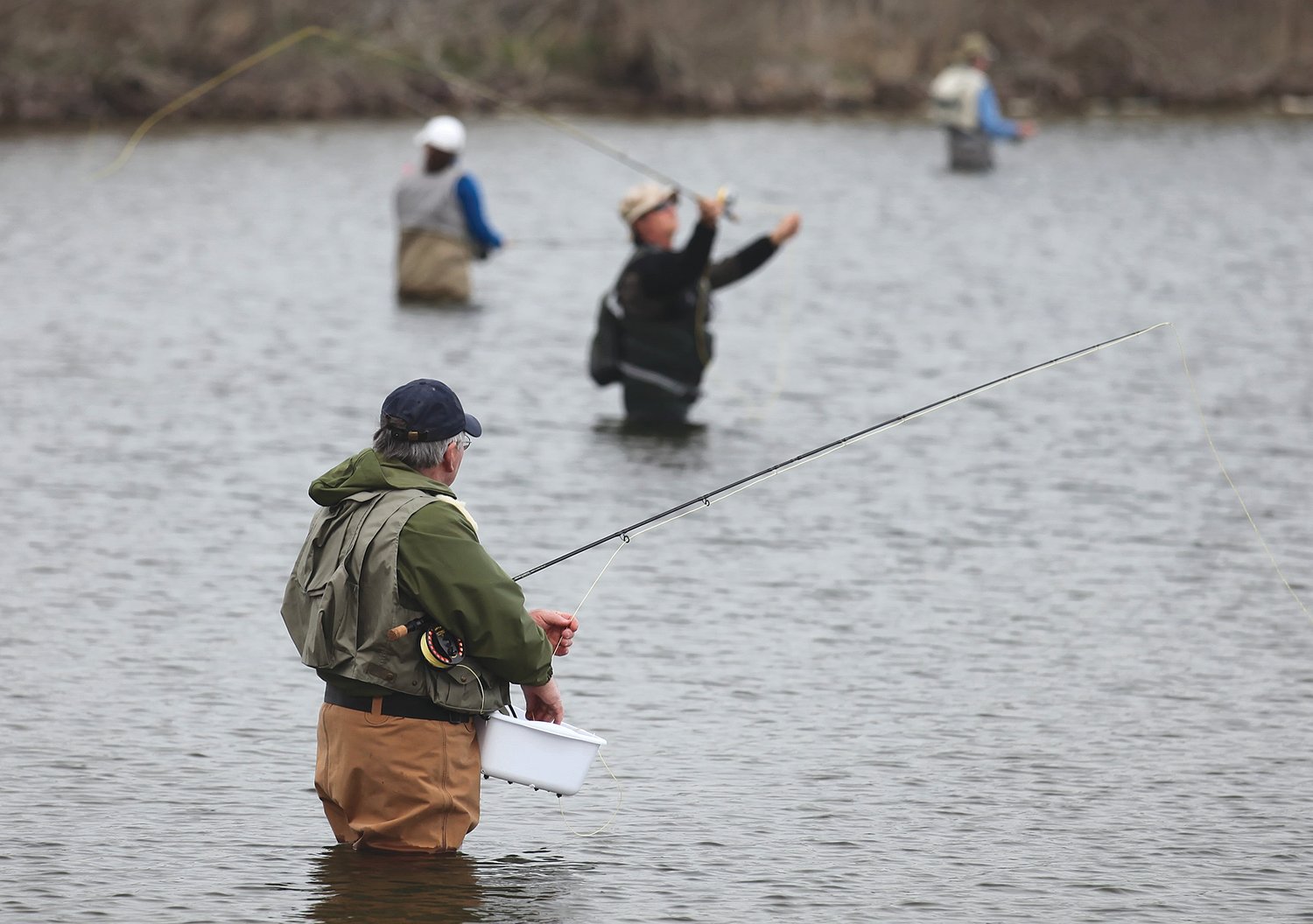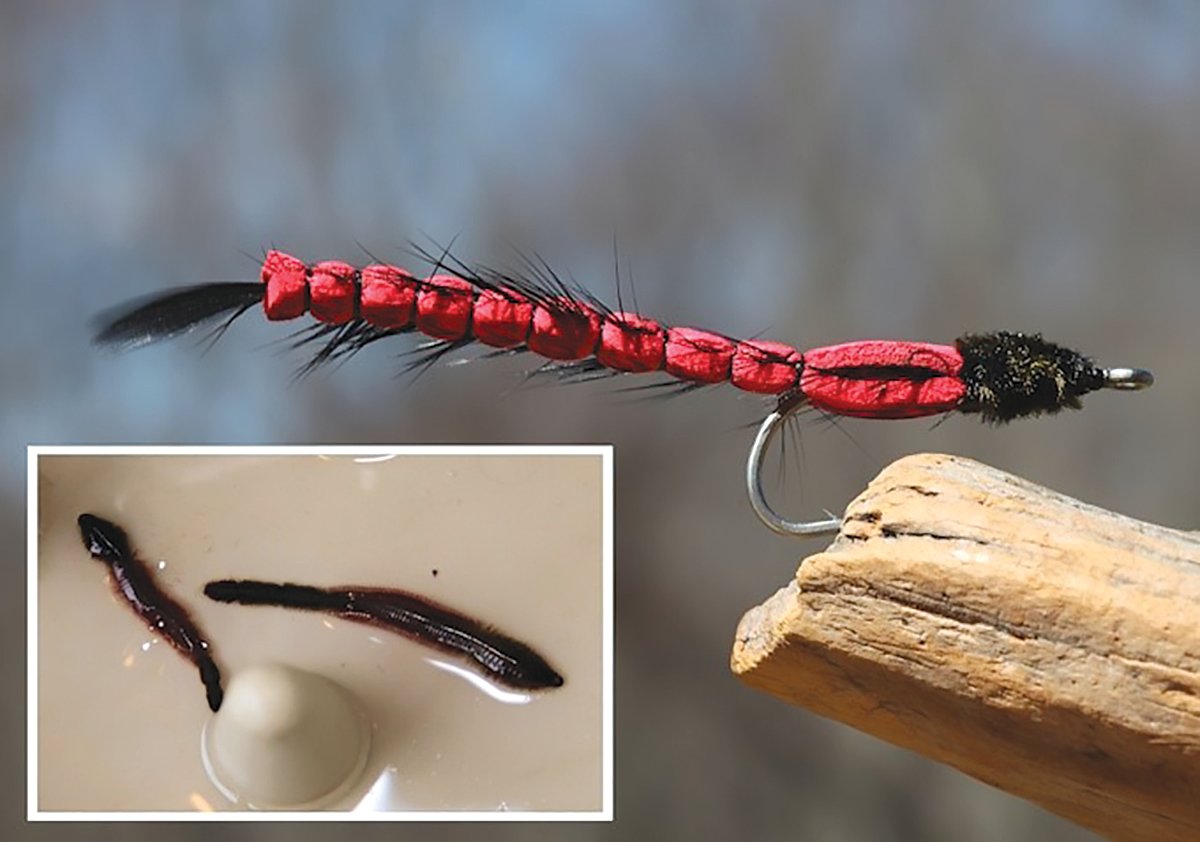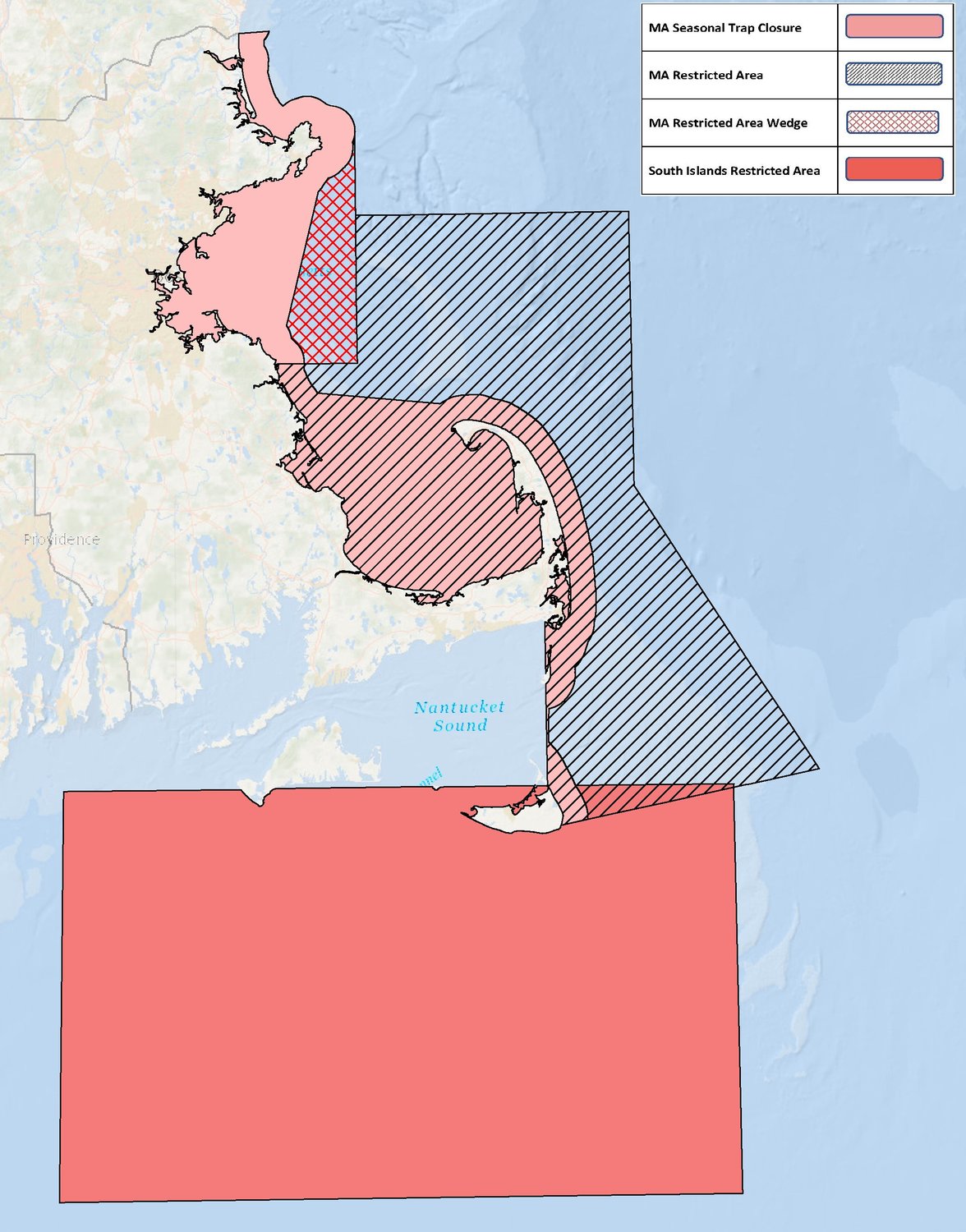- FRIDAY, JULY 26, 2024
Mass. implements right whale closures and restrictions
It was unusual to have right whales feeding on the surface in Cape Cod Bay last month. They usually appear there in the spring.
Warming water, a change in bait and forage fish profiles and other climate impacts are effecting where these and other whales traditionally appear and feed.
The whales are here, so in addition to speed zone restrictions imposed last month, the Massachusetts Division of Marine Fisheries (DMF) is reminding all commercial fishers of the various state and federal seasonal trap gear closures that went into effect on Feb. 1.
The purpose of these closures is to protect seasonal aggregations of right whales from potential entanglements in buoy lines. Compliance with these closures is critically important to state and federal right whale conservation strategies.
Permit holders who leave non-conforming trap gear in these closures may be subject to enforcement actions and administrative sanctions on their permits. Permit holders who have non-conforming gear in these closures should develop a plan to remove the gear as immediately as possible.
Effective Feb. 1, closure and restricted areas include a Massachusetts Commercial Trap Gear Closure area, Restricted Areas, a Restricted Area Wedge, and a Southern Island Restricted Area.
For more information regarding the management of protected marine species in Massachusetts, visit www.mass.gov/marinefisheries or call DMF at 617-626-1520.
Fly-fishing the cinder worm hatch
The U.S. Fish and Wildlife Service, in partnership with R.I. Department of Environmental Management (DEM) Aquatic Resource Education Program, announced its annual Cinder Worm Workshop taking place on three days in May.
This is the program’s 14th year, and it will include two weekday evening classes in fly tying instruction and one weekend evening of fly-fishing. The program is free to registrants.
The cinder worm hatch is a spring time ritual as thousands of cinder worms wiggle their way from the mud to the surface to mate. Striped bass feed on the worms.
Participants get to make their own flies in class then take them out on the water to experience this great fishery.
Instructors will be available to assist novice participants on rigging and casting. “We would prefer if all attended the fly-tying workshops as well as the fly-fishing day on the Grassy Point areas of Ninigret National Wildlife Refuge. We don’t guarantee the weather or the fish,” said Dave Pollack, “but past experiences have shown that this is prime time for the worm mating season.” Pollack and Capt. Ray Stachelek have led a team of volunteer instructors to produce the workshop series for years.
The program is open to any adult or child over the age of 10, regardless of skill level – 40-person maximum so register early. Instruction and guidance will be provided by some of the area’s most proficient and knowledgeable worm hatch fishers.
All fly-tying materials will be provided. Participants are encouraged to bring their own tools and equipment, but all necessary fly-tying tools and equipment will be loaned to registrants upon request. Saltwater fly-fishing equipment, including rods, reel, lines and leaders, will be loaned to registrants who do not have their own gear and tackle upon request in advance.
The Fly Tying classes will be held Tuesday, May 2 and May 9, 6:30 p.m. to 8:30 p.m. at the Kettle Pond Visitor Center, Charlestown, R.I. The Fly Fishing portion of the program will take place Saturday, May 20, from 4 p.m. until dark at Ninigret National Wildlife Refuge, Charlestown.
For information or to register for the program, contact Marisa Podbros, U.S. Fish and Wildlife, at marisa_podbros@fws.gov or call 401.213.4400.
Where’s the bite?
Cod fishing south of Cape Cod is still open. Party boats fishing for cod this winter include the Frances Fleet at www.francesfleet.com and the Island Current at www.islandcurrent.com. Rates vary but are about $135 per adult for a full day of fishing, call to check schedules and make a reservation. Elisa Cahill of Snug Harbor Marina said, “Party boats are catching a nice mix of cod and very large bergalls (also known as cunner or choggies), so they are fishing.”
Freshwater fishing in is often a more angler friendly alternative as cold, high winds and seas often plague salt water fishers this time of year. “Anglers are targeting trout and salmon with shiners, spin baits and PowerBaits with some success. In North Kingstown Rhode Island Barber Pond and Silver Spring Lake are yielding fish for anglers,” said Neil Hayes of Quaker Lane Bait & Tackle, North Kingstown.”
For licenses and trout/salmon waterway stocking information in Rhode Island visit www.dem.ri.gov/fishing, and in Massachusetts www.mass.gov/service-details/trout-stocking-report .
Dave Monti holds a captain’s master license and charter fishing license. Forward fishing news and photos to dmontifish@verizon.net or visit www.noflukefishing.com.
Other items that may interest you











